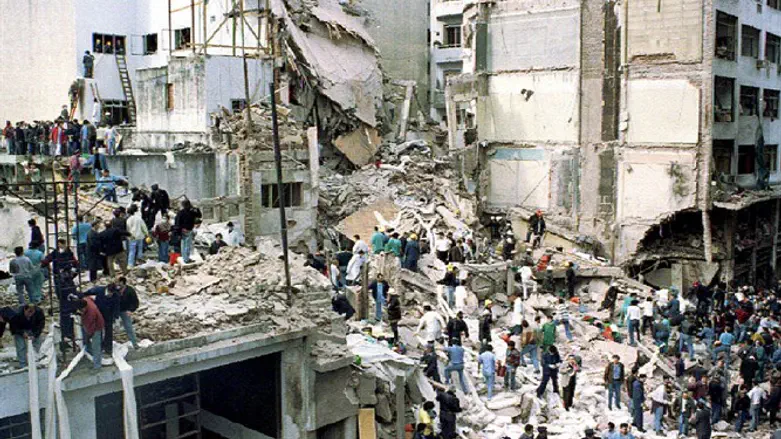
A new set of DNA has been identified among the 85 victims of the AMIA Buenos Aires Jewish Center attack, strengthening the hypothesis that the 1994 attack was carried out by a suicide bomber, JTA reported on Tuesday.
The discovery was announced on Monday by the AMIA Special Investigation Unit of the General Prosecution, two weeks before the 23rd anniversary of the bombing that also injured hundreds, according to the report.
The final report, released after two years of investigation by a forensics team, reveals for first time the existence of a genetic profile among the reserved remains in the laboratory of the Federal Police that “doesn’t belong to any known victims.”
With this information the prosecutors in charge of the special unit are working on “the hypothesis of the suicide bomber” and have already taken steps “in the field of international cooperation to try to match the profile obtained with that of samples of relatives of the suspected individual.”
The suspected individual is not mentioned in the report released to the public but is part of a previous report by the special unit, where he is named as Ibrahim Hussein Berro, a Lebanese citizen and an alleged member of the Hezbollah terrorist group.
The body of the possible suicide terrorist was never found or identified until now.
Argentine investigators accuse former Iranian foreign minister Ali Akbar Velayati and four other Iranian former officials, including ex-president Akbar Hashemi Rafsanjani, of orchestrating the July 18, 1994 car bombing.
The Iranians are accused of ordering Hezbollah to carry out the bombing, the deadliest terror attack in the South American country's history.
Iran denies involvement and has repeatedly rejected Argentine demands for the accused to testify.
In October, Argentina asked Iraq to extradite Velayati, after having previously asked Singapore and Malaysia to extradite him.
Five Iranians are on the Interpol international police agency’s most wanted list in connection with the AMIA 1994 attack, however.
Prosecutors Sabrina Namer, Roberto Salum and Leonardo Filippini have led the AMIA Special Investigatory Unit since the death of their predecessor, Alberto Nisman.
Nisman was discovered shot dead in his apartment in January 2015, hours before he had been scheduled to appear in Congress to present allegations that then-President Cristina Fernandez de Kirchner orchestrated a secret deal to cover up Iranian officials’ alleged role in the AMIA bombing.
Fernandez denied the allegations and judges threw out the case; it was reopened one year ago, though no conclusions have yet been announced.